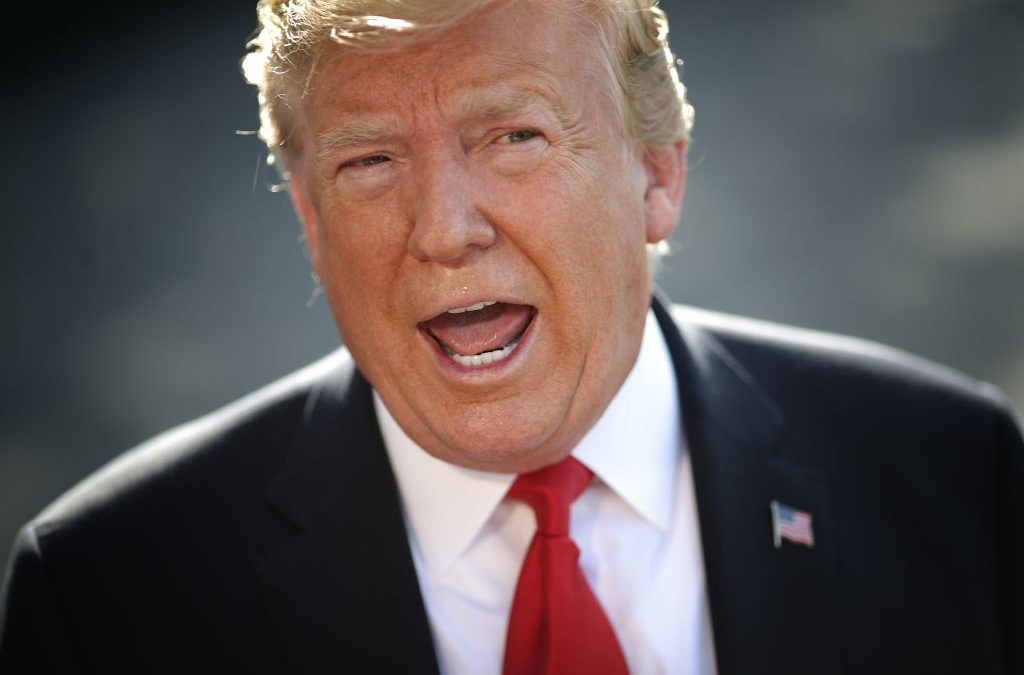Believe it or not, President Donald Trump is in serious trouble.
Whether his unfavorability ratings for handling the economy are 55%, 57%, or 60%, those ratings are about as deep underwater as a U.S. president can be. And that unfavorability is on the very issue that he rode to the White House a year ago. Trump’s unpopularity could reduce his control over the Republican Party (because members of Congress need not fear Trump so much) or show up in next year’s midterm elections (which would end Trump’s legislative hopes and result in a spate of new investigations).
What’s a poor, beleaguered president to do?
Remarkably, the Supreme Court may come to Trump’s rescue.
The Supreme Court will hear argument later this week on whether Trump has the constitutional and statutory authority to impose tariffs under the International Emergency Economic Powers Act (IEEPA). I’m no expert on trade law, but I can read Article 1, Section 8 of the Constitution, which grants Congress the authority to “regulate commerce with foreign nations, and among the several states.” With that as a starting point, I wouldn’t be shocked if the Supreme Court holds, a few weeks or months from now, that Trump improperly imposed sweeping tariffs for reasons such as “Brazil is prosecuting Jair Bolsonaro” and “I didn’t like the advertisement the Province of Ontario ran during the World Series.”
What then? What if Trump loses in the Supreme Court?
Trump isn’t one to accept losing with grace.
But assume for the moment that Trump doesn’t give a speech telling his supporters to attack the Supreme Court building and hang John Roberts.
Assume Trump doesn’t tell the Supreme Court, “Screw you,” and maintain the tariffs despite the ruling.
A normal president might retreat to statutes other than the IEEPA that grant the authority to impose tariffs. Trump might try, for example, to impose tariffs under Section 301 of the Trade Act of 1974 (for unfair trade practices) or Section 232 of the Trade Expansion Act of 1962 (for tariffs on national security grounds). Neither of these statues, however, gives Trump the unbridled power to impose sweeping tariffs that he’s claimed under the IEEPA.
A normal president might ask Congress to approve the tariffs that he has in mind. That would be hopeless, however, even in more traditional times. Republicans have historically been free traders; at least a few would stand by their principles. And Democrats would never give Trump this legislative win.
Suppose Trump does the unexpected and simply accepts the loss: “I’m right on tariffs, but the low-IQ RINOs on the Supreme Court don’t understand the Constitution. Thank you for your attention to this matter.”
Think what that would do to cure Trump’s polling ills on economic issues.
With tariffs reduced to their pre-Liberation Day levels, international trade could flourish again. We’d no longer owe 50% more on Brazilian coffee or 15% more for French wines. Prices probably wouldn’t drop dramatically, but the inflation numbers would improve a little.
At the same time, the uncertainty hanging over the market, because Trump now claims the authority to impose tariffs at whim, would disappear. Companies could start building and hiring again, because they’d know that future tariffs could be imposed only after going through an intelligent process. The stock market would surely get a lift.
And — my point at last! — the Supreme Court would have helped solve Trump’s economic woes. By eliminating the president’s unfettered ability to impose tariffs, the Supreme Court would simultaneously have reduced the pressures on inflation and employment that make people disapprove of Trump’s handling the economy.
All of this depends, of course, on the Supreme Court standing up to Trump, by invalidating his tariffs, and Trump then standing down to the Supreme Court, by begrudgingly accepting its decision.
Perhaps those concepts are delusional, but they just might redound to Trump’s benefit.
Mark Herrmann spent 17 years as a partner at a leading international law firm and later oversaw litigation, compliance and employment matters at a large international company. He is the author of The Curmudgeon’s Guide to Practicing Law and Drug and Device Product Liability Litigation Strategy (affiliate links). You can reach him by email at inhouse@abovethelaw.com.
The post Might The Supreme Court Save Trump’s Economic Chestnuts? appeared first on Above the Law.

